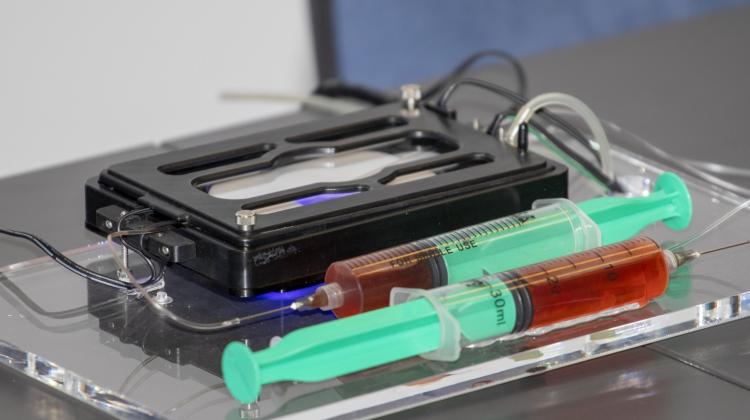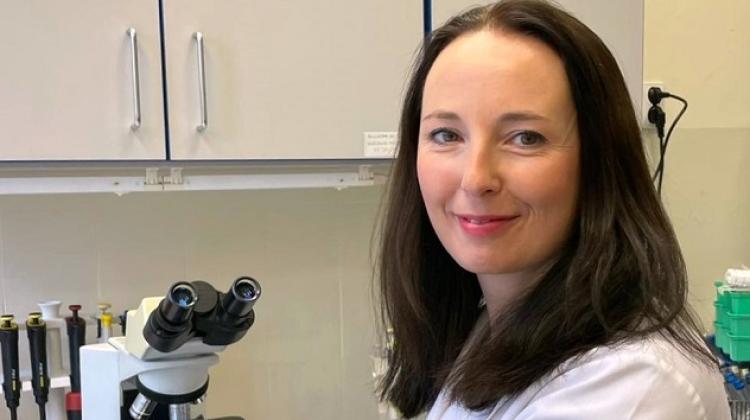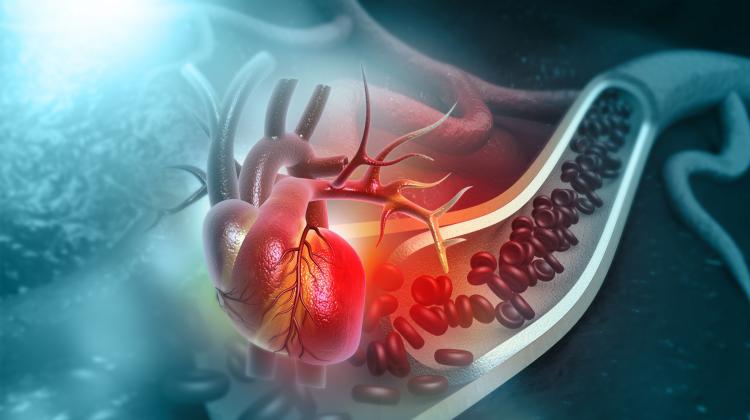Microplatform for drug testing developed at Silesian University of Technology
 Credit: Maciej Mutwil
Credit: Maciej Mutwil
A unique miniature platform for testing drugs that allows scientists to imitate the conditions in the human body and conduct research on cancer cells has been developed by researchers at the Silesian University of Technology.
The specially designed system called the 'Microcircuit for culturing cell spheroids in hydrogels’ make is possible to conduct long-term cell cultures by supplying cells with nutrients using the phenomenon of diffusion.
The platform also enables scientists to safely check how various substances affect the body, and, importantly, how they affect cancer cells.
Dr. Sebastian Student, one of the inventors and Director of the Biotechnology Centre of the Silesian University of Technology said: “Thanks to the platform, we are able to assess the effect of a given drug on these cells.
“This may, to some extent, expedite the implementation process of a given drug.”
With the device, it will be possible to reduce the amount of tests performed directly on living organisms. The invention can be used, for example, in scientific and medical centres conducting this type of research. The inventors emphasise that ‘"the device will find applications especially in the first stages of drug research, when testing the effectiveness of substances on living organisms is avoided.”
Although similar systems have been developed, according to Dr. Sebastian Student, the solution from the Silesian University of Technology is the first to use hydrogel that allows to imitate the conditions in the human body.
Work on the simulator falls within the scope of computational oncology and personalized medicine, which is one of the six priority research areas of the Silesian University of Technology.
Dr. Student said: “Today's medicine cannot exist without biomedical engineering. As biotechnology engineers, we can provide techniques of precise evaluation of various parameters, evaluate the processes taking place in cells. Bioinformatics is a particularly strong area of medical technology.”
The members of the research team working on the project were: Dr. Sebastian Student, Dr. Ilona Wandzik, Dr. Ziemowit Ostrowski, Dr. Małgorzata Milewska, Dr. Kazimierz Gut, Dr. Maria Gracka.
The cell culture microcircuit is the first of the innovative inventions presented by the Silesian University of Technology as part of the 'TOP 100 Innovations' initiative.
Professor Marek Pawełczyk, Vice-Rector for Science and Development said: “The group of 100 innovative projects includes solutions that have the greatest chance for commercialisation and that come from all six priority research areas of our university. By separating this group, we increase the chance of finding real recipients for our solutions. We also want to encourage further authors to cooperate.”
The database of solutions is maintained and supervised by the Centre for Incubation and Technology Transfer of the Silesian University of Technology, which showcases the scientific potential of the Silesian University of Technology, present scientists' inventions as useful solutions, and \ensures that scientists do not have to worry about the commercialisation of their inventions.
Dr. Magdalena Letun-Łątka, Director of the Centre for Incubation and Technology Transfer of the Silesian University of Technology said: “Before the intellectual property produced by scientists is marketed, it has to be reported and secured. The product generated by a scientist has to be safeguarded. It is not always a patent for an invention, it is often know-how, and that is an exceptionally delicate matter.”
PAP - Science in Poland
amk/ ekr/ kap/
tr. RL
Przed dodaniem komentarza prosimy o zapoznanie z Regulaminem forum serwisu Nauka w Polsce.

















